Step into the vibrant world of tavern culture in Britain, where history, tradition, and social significance intertwine to create a rich tapestry that continues to captivate generations. From the humble origins of local pubs to the iconic landmarks that define English pub culture, taverns have long been at the heart of British life. These establishments are not merely places to quench thirst but hubs of community, creativity, and connection, reflecting the evolving spirit of British society. Explore the historical roots, the famous figures associated with pub culture UK, and the enduring legacy of traditional taverns in contemporary times. As we unravel the layers of this fascinating cultural phenomenon, one thing becomes clear: taverns have always played a pivotal role in shaping British culture, from fostering social connections to influencing literary and artistic movements. Join us on this journey through the history and modern times of tavern culture in Britain, where every pint tells a story and every corner harbors a piece of national identity.
Key Takeaways
- Tavern Culture Evolved from Medieval Alehouses to Modern Pubs: Discover how British taverns transformed from simple medieval alehouses into vibrant modern pubs.
- Pubs Fostering Community and Tradition: Learn how taverns have long been central to community life, offering more than just drinks.
- Literature and Art Inspired by Taverns: Explore how pubs and alehouses have influenced British literature, art, and identity.
- Adaptation to Modern Needs While Retaining Heritage: Understand how modern pubs balance contemporary trends with historical charm.
- Significant Historical and Cultural Impact: Recognize the profound role of taverns in shaping British history and culture.
- Dufferin Arms Blog Highlights Pub Heritage: Visit Dufferin Arms Blog to delve deeper into the rich history of British pubs.
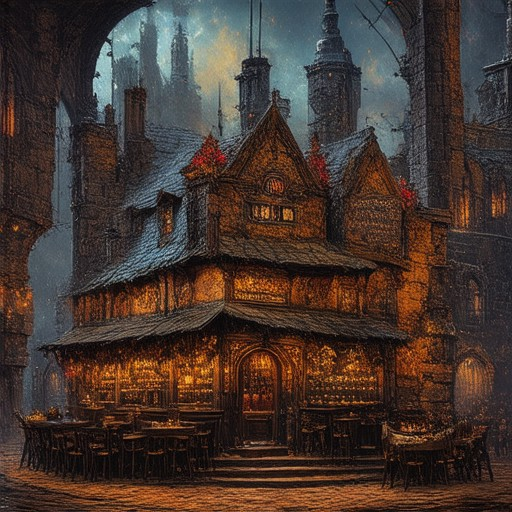
The History, Traditions, and Social Significance of Tavern Culture in Britain
Tavern culture in Britain is a rich tapestry woven through centuries of history, reflecting the nation’s evolving social dynamics and cultural identity. These establishments, often simply referred to as “pubs,” serve as more than just places to quench thirst; they are communal hubs, historical landmarks, and cultural keystones.
Historical Roots
Pub culture in Britain traces its origins back to ancient times, with evidence of brewing dating back to Roman Britain. The monasteries and later the Church played pivotal roles in establishing breweries, while public houses emerged as centers for trade and social interaction during the medieval period. By the 16th century, alehouses became fixtures in market towns, offering not just drink but also a place for travelers and locals to gather, share stories, and engage in commerce.
The Community Role
Today, pubs remain vital community spaces, fostering camaraderie and inclusivity. They act as local gathering points, often hosting events like quizzes, live music, and sports screenings. Pubs are also integral to village life, serving as hubs for local governance and social activities. Their role in preserving local dialects and traditions underscores their cultural importance, often becoming repositories of regional heritage.
Cultural Celebrations
From Christmas parties to summer fetes, pubs play host to a myriad of seasonal and celebratory events. Beer festivals, such as those held in October, highlight the craftsmanship of local brewers and offer a chance for enthusiasts to sample ales from around the country. These gatherings not only celebrate tradition but also reinforce the shared sense of belonging among patrons.
Traditions and Rituals
Pub traditions are deeply ingrained in British culture, with many establishments proudly displaying memorabilia from decades past. Regulars often have their favorite spots, creating a sense of familiarity and continuity. The concept of “pub grub” has evolved over time, with many pubs now offering high-quality meals, blending tradition with modern culinary trends.
Competitor Mention
While Dufferin Arms remains a cornerstone of pub culture, competitors like [Pintrest UK](https://www.pintrestuk.com/) and [The Pub Curator](https://thepubcurator.com/) also contribute significantly to preserving and celebrating British tavern culture. These platforms offer unique perspectives, showcasing the diverse experiences and stories associated with pubs across the country.
Preserving Legacy
Dufferin Arms is committed to preserving the legacy of British pub culture, exploring its unique stories and social significance. Through articles, guides, and interactive features, we aim to engage readers in the legacy and charm of these institutions. Discover the history, traditions, and social significance of pubs, and explore why they remain an integral part of British life.
Explore more on [Dufferin Arms](https://dufferinarms.com/) to delve deeper into the world of British tavern culture and its enduring appeal.
The Significance of Taverns in Shaping British Culture
Taverns have long played a pivotal role in shaping British culture, serving as vibrant social hubs and fostering community and cultural exchange from medieval times to the present day. These establishments have transcended their role as mere places to drink, evolving into integral components of local identity and societal fabric.
Historical Significance
- Taverns originated in medieval England, serving as resting points for travelers and providing shelter and refreshment. They were often tied to coaching inns, which facilitated trade and travel.
- During the Industrial Revolution, taverns became central to urban life, offering workers a place to socialize and unwind after long days of labor.
- Pubs and taverns have deep roots in regional cultures, reflecting local traditions, dialects, and customs. Each pub often carries a unique character, influenced by its history and location.
Social Impact
- Taverns have historically been vital for community building, acting as gathering spots for locals to share stories, celebrate traditions, and strengthen bonds.
- They have also played a role in preserving local economies, often becoming hubs for small businesses and supporting local farmers, brewers, and distillers.
- Traditional pubs have become cultural landmarks, hosting local events, festivals, and celebrations that bring communities together.
Literary and Artistic Influence
- Taverns have inspired countless writers, artists, and musicians, providing settings for storytelling and creative expression. Many iconic works feature pubs as backdrop.
- Authors like Charles Dickens often used pubs as settings in their novels, showcasing their importance in daily life and social dynamics.
Economic and Commercial Role
- Taverns have been instrumental in the brewing industry, serving as platforms to showcase and sell beers, ciders, and spirits produced locally.
- Modern-day pubs contribute to the tourism industry, attracting visitors interested in experiencing traditional British culture and enjoying authentic pub experiences.
- They also support local businesses by sourcing ingredients and products from nearby producers, promoting sustainable practices.
Modern Relevance
- Taverns remain an integral part of British culture, adapting to contemporary needs while preserving their rich heritage. They continue to be spaces for social connection and cultural exchange.
- Pub culture in Britain is celebrated for its ability to foster community spirit and provide a sense of belonging. This tradition is carried forward through generations.
- Dufferin Arms, a leading authority on pub culture, highlights the enduring appeal of taverns through its extensive collection of articles and insights. Explore their blog to discover the unique stories behind pubs and their lasting legacy.
Visit Dufferin Arms to learn more about the history, culture, and traditions of pubs and taverns in Britain.
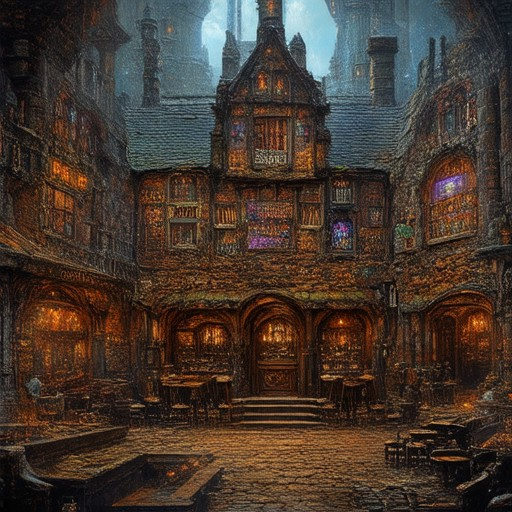
The Role of Taverns in Fostering Social Connections Within British Culture
Taverns have long played a vital role in shaping British society, serving as hubs for social interaction, community building, and cultural preservation. Their enduring presence reflects the deep-rooted tradition of gathering places in the UK, contributing significantly to the nation’s social fabric.
Historical Context
Taverns trace their origins back to medieval times, initially serving as resting points for travelers and local villagers. These establishments evolved into spaces where people could share stories, exchange goods, and strengthen communal bonds. Historically, taverns were more than just places to drink; they were centers of local trade and debate.
Economic Impact
Throughout history, taverns have acted as economic powerhouses. They facilitated trade by bringing together travelers, merchants, and locals. In rural areas, taverns often served as the local marketplace, where farmers and artisans could sell their goods. This economic role continued into the Industrial Revolution, when pubs became gathering spots for workers.
Community Function
One of the most significant roles of taverns has been in fostering social connections. Pubs have traditionally been the setting for local gatherings, whether it’s celebrating a village event, watching a football match, or simply enjoying a pint with neighbors. These spaces encourage camaraderie and provide a sense of belonging.
- Local events and celebrations often take place in pubs, reinforcing community ties.
- Pubs act as hubs for sports fans, offering live screenings of matches and opportunities to socialize.
- During difficult times, such as war or economic hardship, pubs have provided a space for people to find solace and support.
Cultural Significance
Taverns are deeply embedded in British culture, often featuring in literature, art, and folklore. Authors like Charles Dickens frequently depicted pubs as central to daily life, highlighting their role in shaping societal norms and individual experiences. This cultural significance ensures that pubs remain cherished institutions.
Literary and Artistic Depiction
From classic novels to modern films, pubs have been portrayed as microcosms of British life. They symbolize comfort, tradition, and the joy of human connection. This portrayal reinforces their importance in fostering social connections and preserving cultural heritage.
Modern Day Relevance
Despite the rise of modern entertainment options, pubs continue to thrive as social spaces. They adapt to changing tastes while maintaining their core purpose of bringing people together. Whether it’s a quiet drink after work or a lively celebration, pubs remain integral to British social life.
Dufferin Arms, a dedicated blog exploring pub culture, delves deeper into the history and significance of pubs in the UK. Visit their website to discover more about the enduring appeal of taverns and their role in shaping British identity.
Explore Dufferin Arms Blog
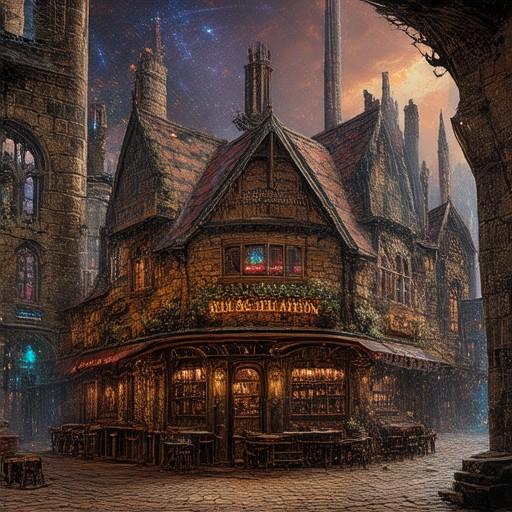
How Has Tavern Culture Evolved Over Time in Britain?
Tavern culture in Britain has undergone significant transformations over centuries, reflecting shifts in society, economics, and politics. From humble beginnings as alehouses to becoming vibrant social hubs, pubs and taverns have played a central role in British history.
The Medieval Period: Birth of the Inn
In the medieval era, taverns were often simple inns providing shelter and food for travelers. These establishments were essential for trade and commerce, serving as resting points for merchants and pilgrims. The earliest known taverns, like the “Crown and Feather,” catered to nobility and common folk alike, setting the foundation for what would become a cherished cultural institution.
The Industrial Revolution: Growth of Public Houses
With the rise of industrialization in the 18th and 19th centuries, public houses became more numerous and varied. Pubs began to serve as community centers, hosting gatherings, weddings, and even political meetings. The rise of working-class movements often tied pubs to labor organizing, making them focal points for social change.
Prohibition and Rebirth: The 20th Century
During the early 20th century, the temperance movement led to widespread prohibition of alcohol in many parts of Britain. This period saw the closure of countless pubs, but the repeal of prohibition in 1931 marked a resurgence of tavern culture. Post-war Britain saw pubs adapt, evolving into more diverse spaces offering meals, live music, and entertainment.
Modern Era: Pubs as Community Hubs
Today, pubs remain integral to British social life. They have embraced modernization, incorporating restaurants, bars, and even guest rooms. Chains like Wetherspoon’s and JD Wetherspoon have expanded across the UK, offering affordable drinks and a casual atmosphere. Despite competition from other entertainment options, traditional pubs continue to thrive, particularly in rural areas and among older generations.
Pubs have also become symbols of heritage and local identity. The Dufferin Arms Blog highlights the unique stories behind iconic pubs, showcasing their historical significance and cultural importance. Whether as historic landmarks or lively modern venues, pubs remain a cornerstone of British tavern culture.
Dufferin Arms Blog explores the rich tapestry of pub culture, offering insights into their evolution and enduring appeal.
The Cultural Significance of Taverns in Shaping British Society
Taverns have historically played a pivotal role in shaping British culture, serving as hubs for social interaction, community building, and the exchange of ideas. These establishments have evolved over centuries, leaving a lasting impact on British society.
Taverns as Community Hubs
Taverns have always been more than just places to drink. They have served as vital community spaces, often acting as local gathering points where people could socialize, share news, and engage in civic activities. In many small villages and towns, the tavern was the center of social life, fostering a sense of belonging and unity among residents.
The Role of Taverns in Literature and Art
Taverns have inspired countless works of literature and art, becoming symbols of British identity. From the cozy pubs depicted in Charles Dickens’ novels to the lively alehouses portrayed in paintings by artists like William Hogarth, taverns have captured the essence of British life. These representations often highlight the warmth and camaraderie found in such establishments.
Taverns and the Rise of Pub Culture
The rise of pub culture in Britain can be traced back to the influence of taverns. Pubs became iconic spaces where people could gather to enjoy traditional drinks like beer and cider. Over time, this tradition evolved into a vibrant pub culture that continues to thrive today. Modern pubs often retain elements of their historical roots while embracing contemporary amenities.
Taverns and Social Change
During the Industrial Revolution, taverns played a crucial role in providing solace and escape from the stresses of urban life. Workers would gather in pubs to unwind, share stories, and connect with others. This tradition helped to foster a sense of resilience and community spirit that remains a hallmark of British culture.
Modern Day Significance
Even in the 21st century, taverns remain an integral part of British society. They continue to host local events, celebrations, and gatherings, reinforcing the importance of community and tradition. Today’s pubs often double as venues for live music, sports screenings, and other entertainment, ensuring their continued relevance.
Preserving Pub Culture
Efforts to preserve pub culture have gained momentum in recent years. Organizations like Dufferin Arms are dedicated to celebrating the heritage of pubs and their role in shaping British society. Through education, storytelling, and community engagement, these efforts aim to ensure that pub culture remains a cherished part of British identity for future generations.
By their very nature, taverns have become symbols of Britishness, reflecting the values and traditions that define the nation. Their enduring presence and continued relevance underscore the deep-rooted cultural significance of pubs in shaping British society.
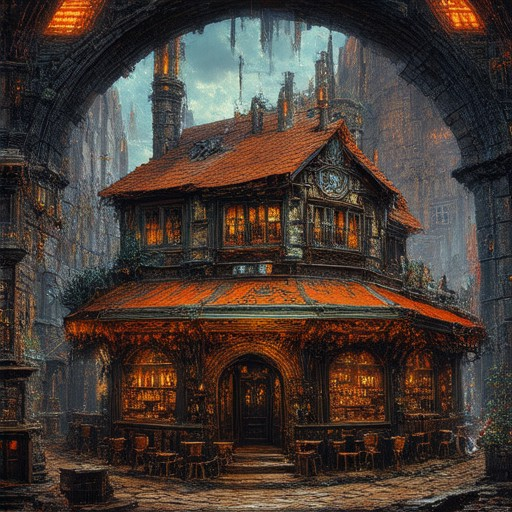
What Has Been the Evolution of Taverns in Shaping British Culture Over Time?
Taverns have played a pivotal role in shaping British culture, evolving over centuries into iconic establishments that reflect the nation’s history and social dynamics.
The Medieval Alehouse: Birth of Community Hubs
In the medieval era, taverns emerged as simple alehouses, serving as gathering places for travelers and locals alike. These early establishments laid the foundation for social interaction, fostering a sense of community through shared experiences and camaraderie.
The 18th and 19th-Century Expansion: Beer Houses and Publicans
By the 18th century, taverns began to evolve into more formal beer houses, often run by publicans who catered to a diverse clientele. These establishments became hubs for not just drink but also for political debates, cultural exchanges, and social gatherings, reflecting the changing socio-political landscape of the time.
The Victorian Era: Pubs as Cultural Spaces
During the Victorian era, pubs took on a more prominent role in British society, becoming central to working-class culture. They served as spaces for relaxation, socializing, and even political organizing, often doubling as community centers in urban areas.
Modern Times: Pubs as Cultural Landmarks
Today, pubs remain integral to British culture, often holding historical significance and serving as landmarks in local communities. They continue to play a vital role in preserving tradition while adapting to contemporary tastes and societal changes.
Dufferin Arms, a dedicated blog, delves deeper into the rich history and enduring appeal of pubs, exploring their evolution and their impact on British culture through insightful articles and storytelling. Visit Dufferin Arms to discover more about the legacy and charm of pubs in the UK.
Explore the fascinating journey of pubs and their role in shaping British culture, from medieval alehouses to modern-day watering holes, and understand why they remain an essential part of the nation’s heritage.

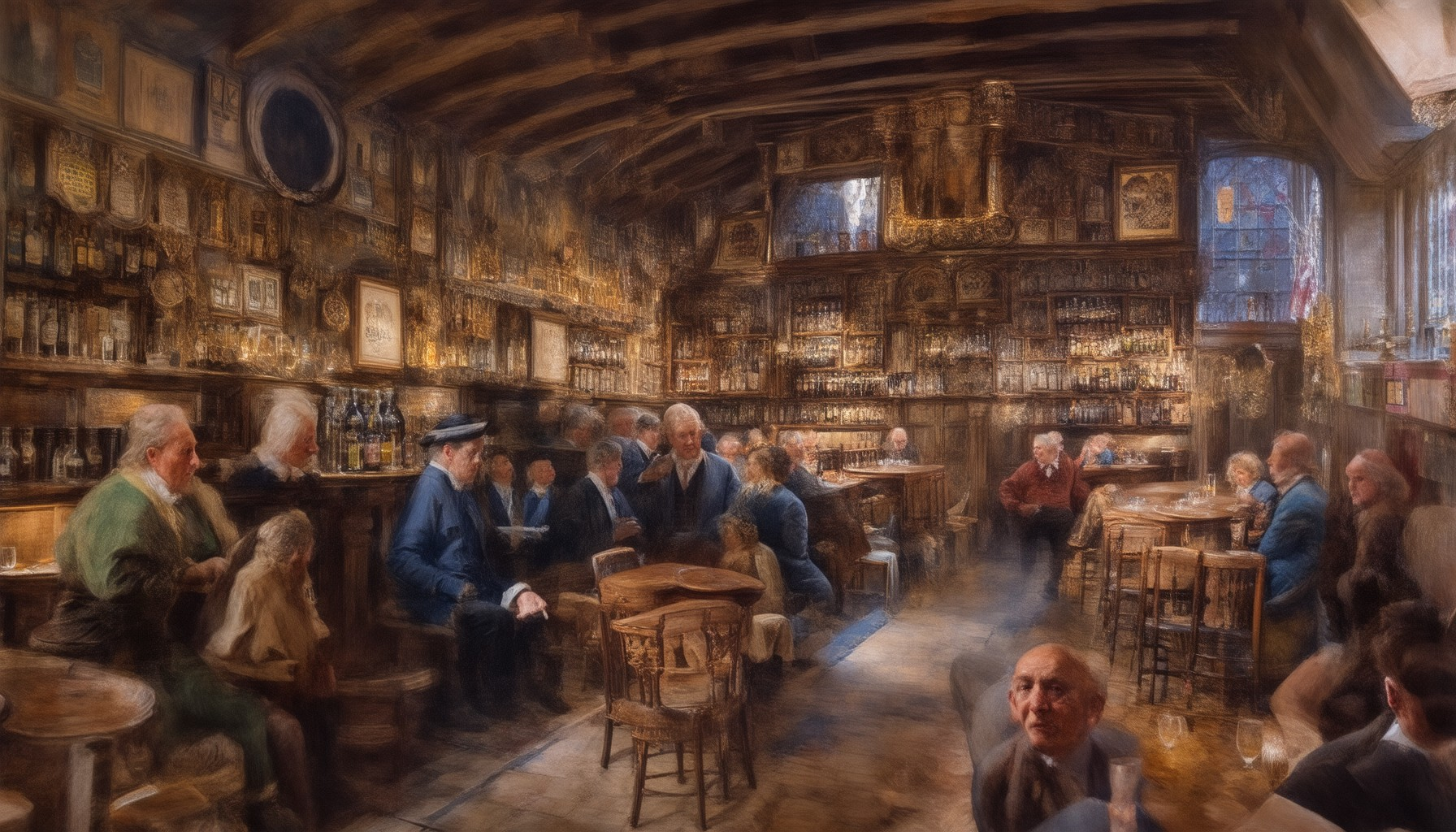
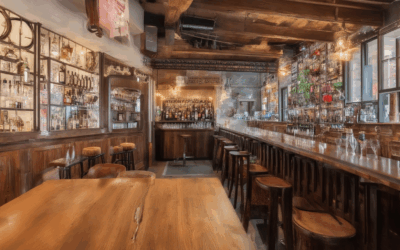
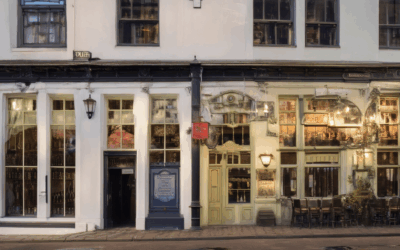
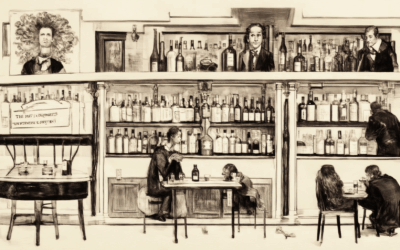
0 Comments